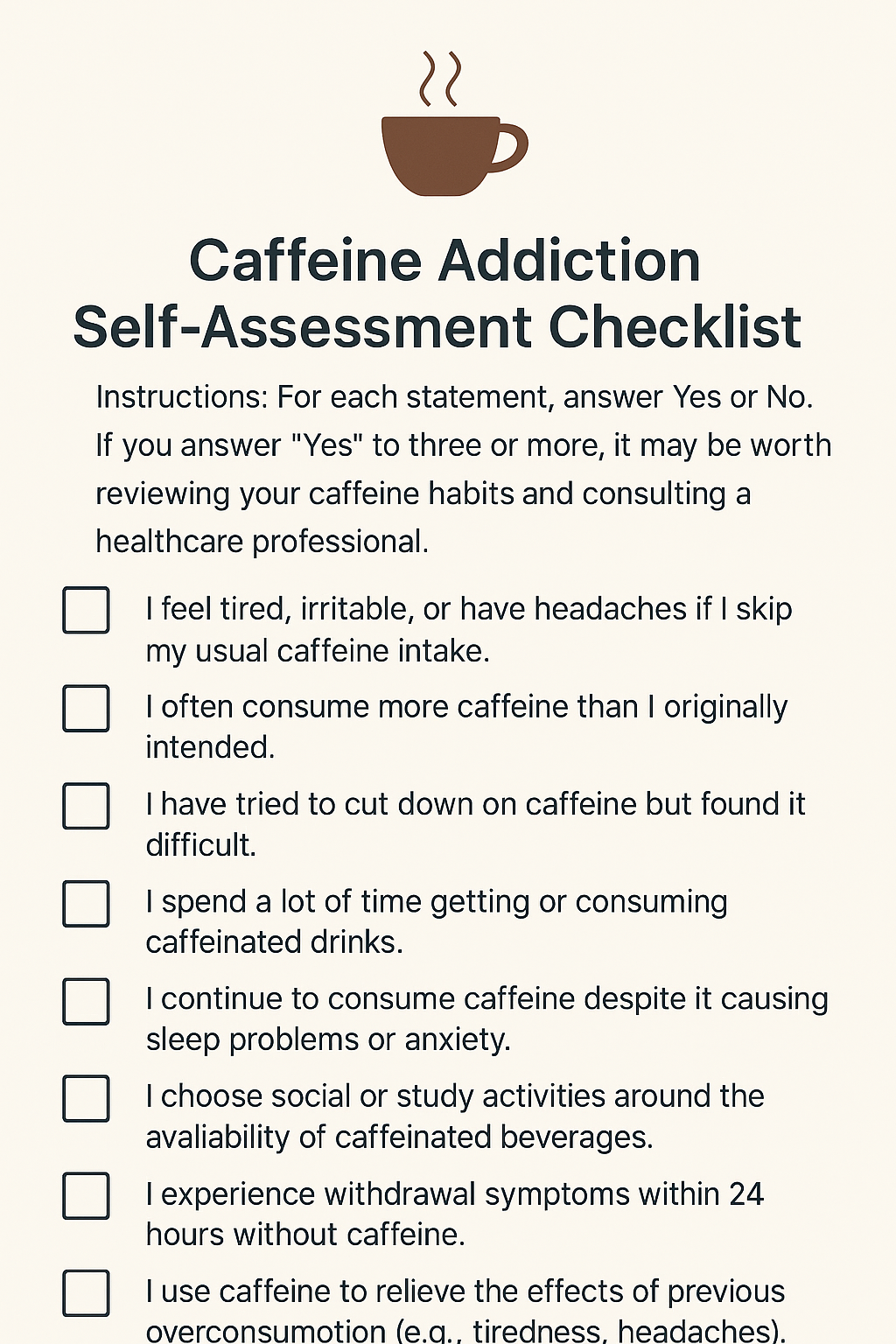Caffeine Addiction Self-Check: Are You Consuming Too Much?
Written by Eunseo Whaong
Why This Matters
Caffeine is the most widely consumed psychoactive substance in the world. While moderate intake can enhance alertness and mood, excessive and regular use can lead to dependence—commonly referred to as “caffeine addiction.”
For adolescents and young adults, the risk is even greater due to lower body mass, developing nervous systems, and the increasing popularity of energy drinks.
This checklist is designed based on criteria adapted from the DSM-5 (Diagnostic and Statistical Manual of Mental Disorders) and peer-reviewed research, helping you identify whether your caffeine consumption patterns may be problematic.
Caffeine Addiction Self-Assessment Checklist
Interpreting Your Score
0–2 Yes answers: Low likelihood of dependence. Maintain moderate consumption.
3–5 Yes answers: Possible caffeine dependence—consider reducing intake gradually.
6–8 Yes answers: Strong likelihood of dependence. Seek professional advice and create a reduction plan.
How to Cut Back Safely
Step Down Gradually: Reduce intake by 10–20% per week to minimize withdrawal symptoms.
Hydrate: Drink water throughout the day to replace caffeinated beverages.
Substitute: Try herbal teas, decaf coffee, or naturally caffeine-free alternatives.
Sleep Hygiene: Improve sleep quality to reduce reliance on caffeine for alertness.
Conclusion
Caffeine can be a useful stimulant, but dependence can subtly creep in. Self-awareness is the first step toward healthier habits.
Use this checklist periodically to track changes in your relationship with caffeine, and remember—balance is key.
References
American Psychiatric Association. Diagnostic and Statistical Manual of Mental Disorders, Fifth Edition (DSM-5). Washington, DC: American Psychiatric Association; 2013.
Juliano, L. M., & Griffiths, R. R. (2004). A critical review of caffeine withdrawal: empirical validation of symptoms and signs, incidence, severity, and associated features. Psychopharmacology, 176(1), 1–29. https://doi.org/10.1007/s00213-004-2000-x
Temple, J. L., Bernard, C., Lipshultz, S. E., Czachor, J. D., Westphal, J. A., & Mestre, M. A. (2017). The Safety of Ingested Caffeine: A Comprehensive Review. Frontiers in Psychiatry, 8, 80. https://doi.org/10.3389/fpsyt.2017.00080
World Health Organization (WHO). Caffeine and health in adolescents. WHO Technical Report, 2021. https://www.who.int/publications

